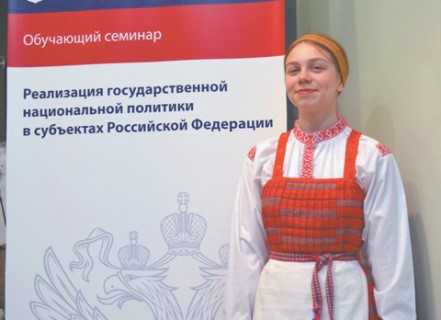Russia's control of nationalities
Faced with separatist trends, the head of the agency for ethnic issues in Russia proposes to change the monitoring system. In Russian legislation, and in legal practice, there are no criteria for qualifying unrest and discontent as 'problems between nationalities', which are often downgraded to 'economic disagreements' or 'street clashes'.
Moscow (AsiaNews) - Russia's federal agency for nationality issues (Fadn) has proposed changes to the state system for monitoring relations between ethnic groups and religions, and for preventing conflict situations, announced the head of the agency, Igor Barinov.
He was responding to the many concerns that have been building up over the separatist and identity-based drives of recent times. Experts are divided on whether to limit themselves to 'technical adjustments' to the system, or on the contrary radically change the policy on nationalities, an issue that has been debated in Russia for centuries.
Proposals in this regard are being considered by all the bodies involved, with the aim of arriving at a common answer by July. The state portal of regulatory acts will remain open for a few more days to receive all suggestions.
Barinov spoke out against the use of the Gism system, the marking of all leather goods for remote control and prevention, stating that 'automated functions are not really effective without an overall control system', while cooperation between the many federal structures requires an 'active exchange of confidential information'.
Increasingly strict control measures are called for, however, given the ineffectiveness of even the 'Situation Centre' set up at the end of last year, which is supposed to monitor 88 federal subjects in agreement with local authorities.
These are mostly 'technical-legal dimensions', as political scientist Mikhail Burda points out: 'they are important decisions to optimise work, but they fail to give a true picture of reality'. The 'automated' control serves to draw up minutes in which officials pass the buck to each other, Burda further argues.
Instead, the data should be used for an in-depth analysis of ethno-political problems, according to the political scientist, and this could force one to 'pay attention to the many situations that are not favourable to the bureaucracy in charge'.
In Russia there is the principle that there are no inter-ethnic conflicts, despite the 'attempts of saboteurs', Barinov reminded the recent St. Petersburg Economic Forum, and therefore often 'even rather relevant cases of conflicts and problems are not recorded'.
In Russian legislation, and in legal practice, the criteria for qualifying unrest and discontent as 'problems between nationalities' are absent. They are often classified as 'economic disputes, street clashes', or with an even more generic expression, 'relations of mutual intolerance that have suddenly arisen'.
This is why many shift their attention precisely to the specification of criteria, rather than to surveillance techniques: 'first reality, then tools', says Burda.
The Fadn clearly lacks the economic means and personnel for such in-depth work, all experts acknowledge. As it has no sections spread across the territory, it remains dependent on the uncertainties of the local administrations, which are often inclined to underestimate or distort the problems; according to Burda, 'there is a lack of central political will to coordinate this immense work', which would instead require 'an intervention by the federal government to outline inter-ethnic, migration and even demographic policy in the context of the whole national policy'.
All these issues are today divided between different structures, often very uncooperative with each other.
A member of the President's Council for Human Rights, Aleksandr Brod, also intervened in the debate, warning that 'in a context as broad and diverse as Russia, it only takes a small spark to start a huge fire'.
He cites as an example the recent clashes in several Russian cities between Tajiks and Uzbeks, and the violent police crackdowns: it is not enough to tighten controls and police actions, at the risk of blowing up the whole empire.
22/04/2023 21:54







.png)










